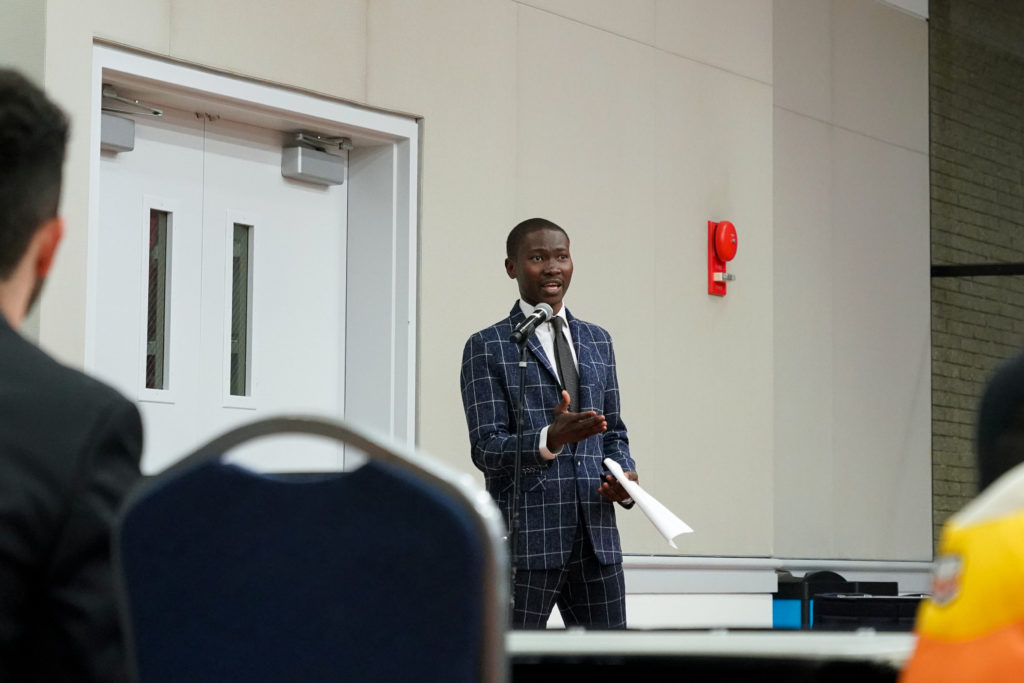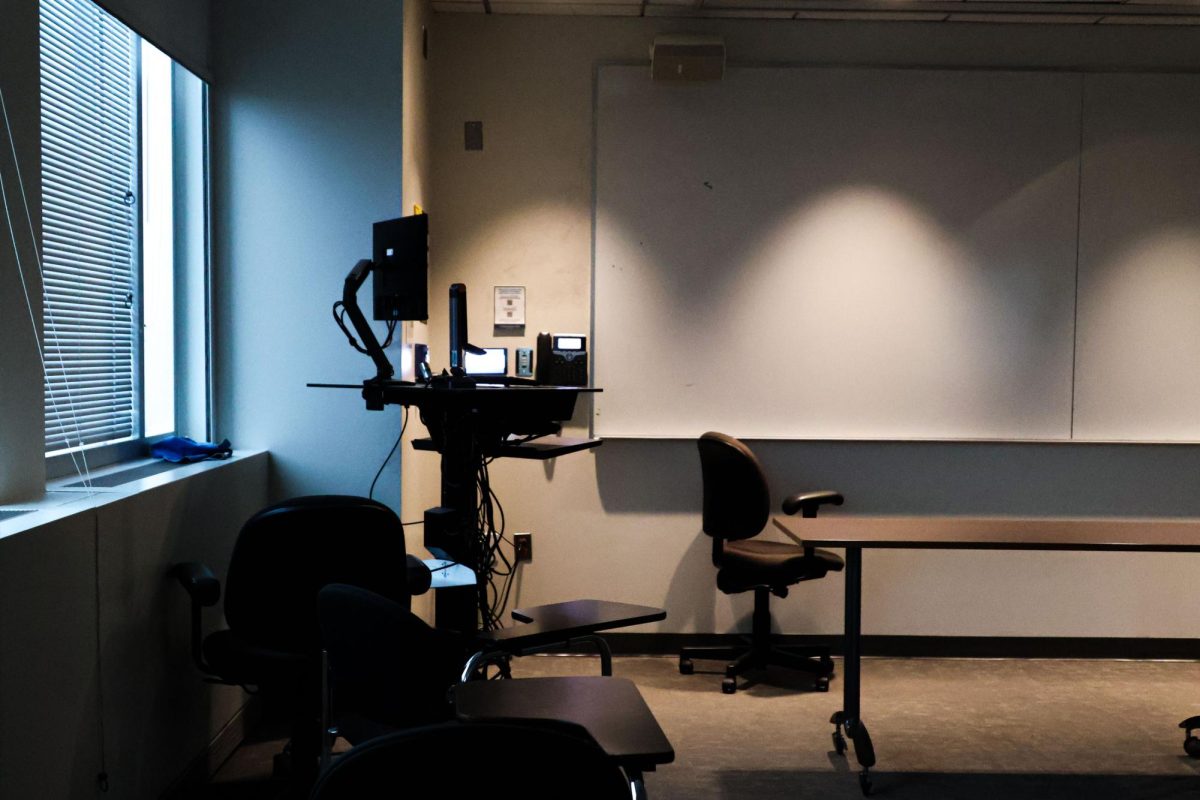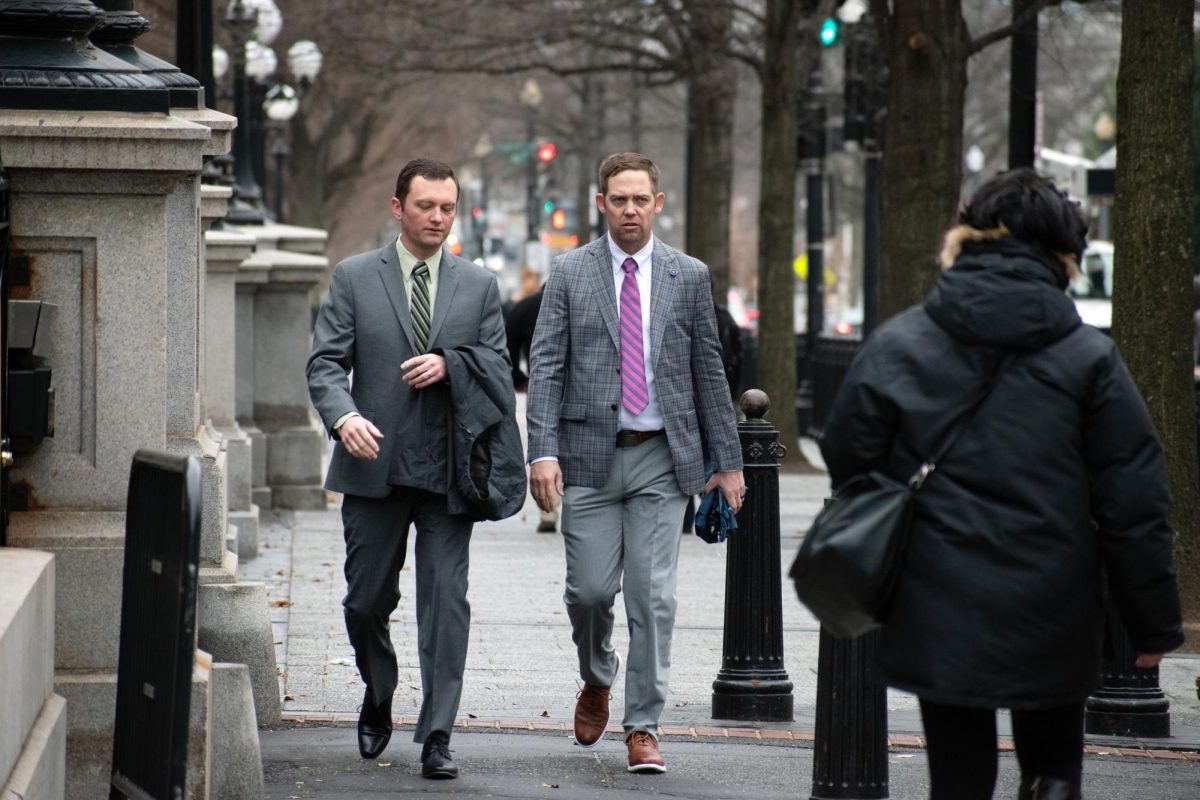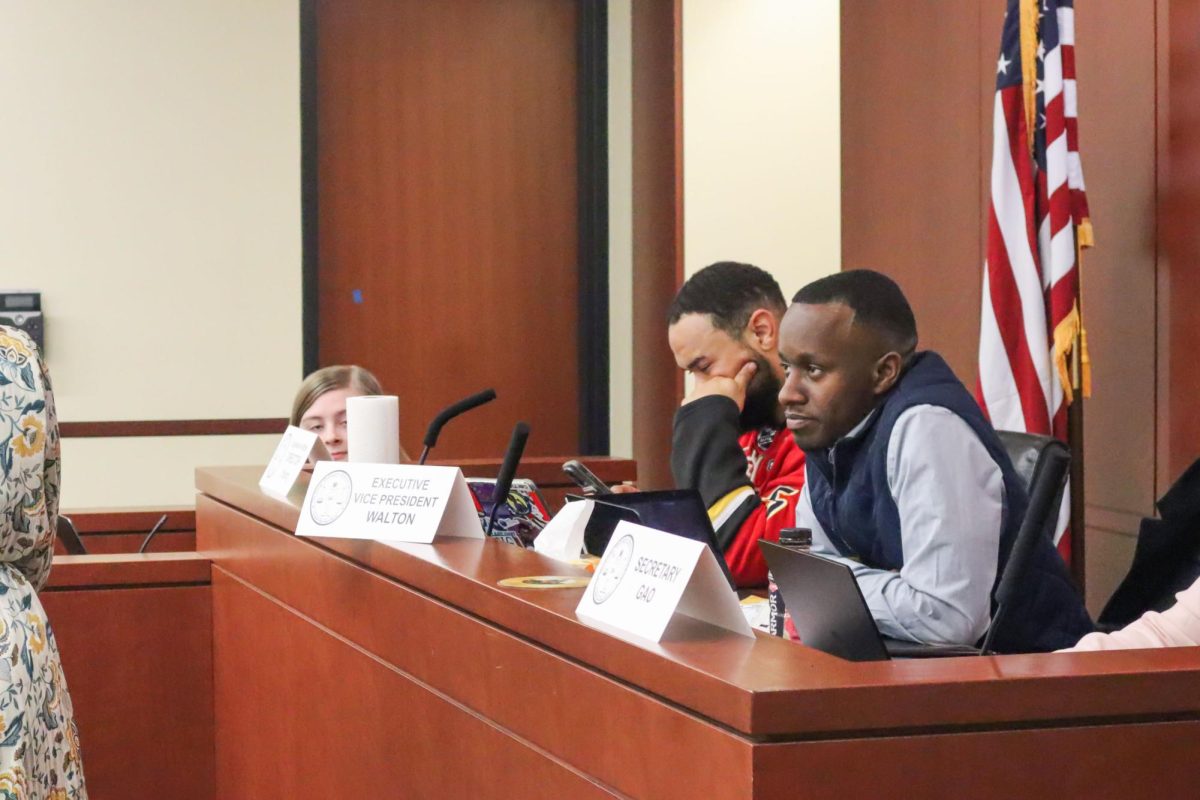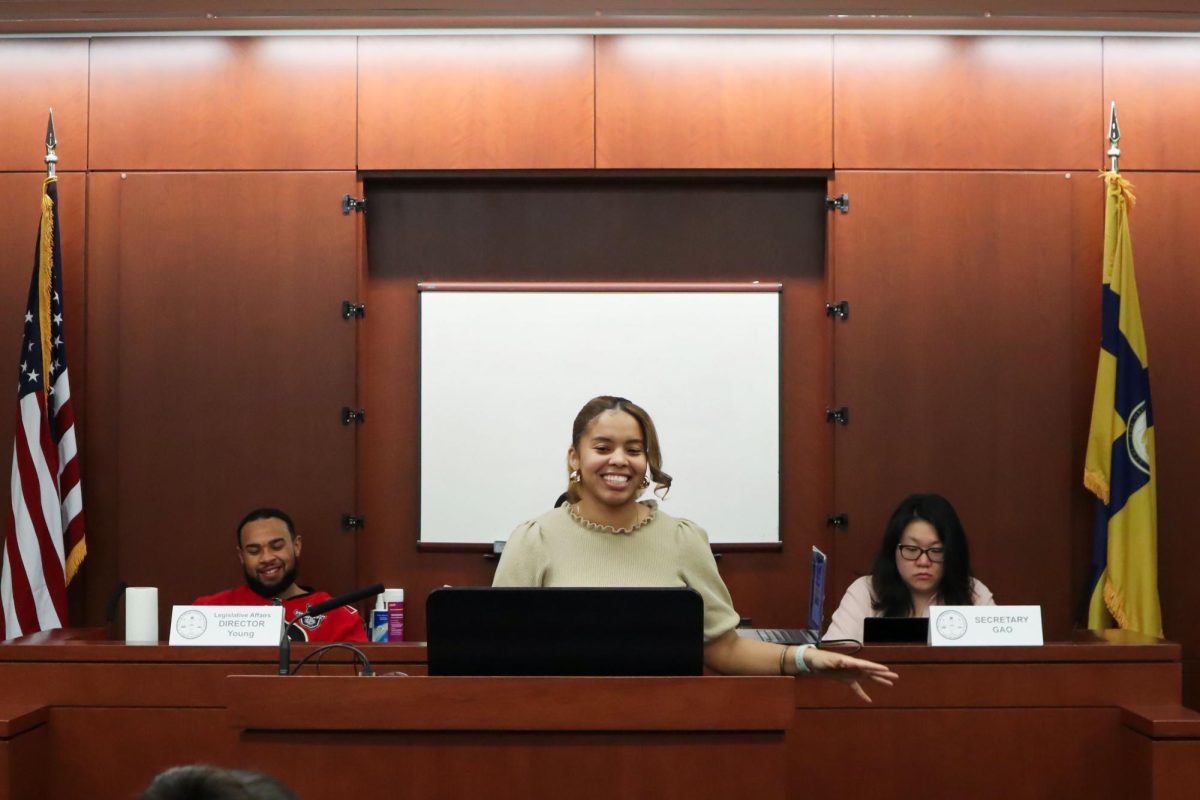Student Association President Christian Zidouemba motioned to withdraw his Student Court case against the Joint Elections Commission Thursday.
Three prospective SA candidates who filed suits against the JEC have withdrawn their cases against the JEC in the Student Court after presidential hopeful Mohamed Redzuan Bin Mohamed Raffe and senate hopeful Aidan Spencer settled their cases out of court with the JEC. Zidouemba said in his motion to withdraw that he maintains he is innocent of the charge that he impersonated other candidates, but he has decided not to seek reelection.
“As the incumbent President of the Student Association, I have sought to meet the high standard of moral probity required of public officeholders, and serve as an exemplar for other students,” his motion reads. “Those at this University with whom I have had the privilege of working will know this from my experiences with them.”
The JEC disqualified Zidouemba last week, ruling he collected petition signatures for his campaign but told students he was collecting signatures on behalf of other candidates.
Zidouemba’s motion states he will pursue off-campus leadership and job options, which the motions states are “better opportunities.”
“I maintain my innocence, but my desire to not run makes this case unripe,” the motion reads. “Out of respect for the Court’s time and rules of procedure, I therefore choose to withdraw it.”
Senate Legal Counsel Juan Carlos Mora said in a statement Thursday on behalf of the JEC that the JEC maintains its claims against Zidouemba but “looks forward to” conducting the election on April 13 and 14.
“I am pleased to see that Mr. Zidouemba has decided to put the interests of students above his own,” the statement reads.
Zidouemba initially argued in a brief submitted to the court Wednesday that the JEC did not provide evidence showing he impersonated Raffe or Spencer. The brief argued the JEC should not have found Zidouemba guilty of impersonation because Raffe and Spencer – who Evans alleged Zidouemba impersonated – testified they signed Zidouemba’s petitions knowing they were for his candidacy.
The brief also argued Zidouemba did not receive ample notice of the charges against him because the 48-hour warning window overlapped with a weekend.
Zidouemba did not return multiple requests for additional comment.
The JEC submitted a motion to dismiss Zidouemba’s case and a brief arguing against Zidouemba’s case prior to his withdrawal.
The motion to dismiss states Zidouemba’s complaint asks the court to answer a political question by challenging the JEC’s indictment and finding of guilt because the JEC has full authority over whether or not to certify candidates, under the SA bylaws. The defense argues the court only has the authority to decide whether Zidouemba’s right to due process was violated, not whether he should have been disqualified.
The defense also argued Zidouemba failed to provide “sufficient facts” to show the JEC acted in a way that violated the SA bylaws. The bylaws state that the court can only overturn a JEC decision if it acts in a way that is “arbitrary and capricious, an abuse of discretion, or otherwise not in accordance with governing law.”
Spencer withdrew his Student Court case after settling with the JEC Monday.
“We are thankful to Mr. Spencer and his legal counsel for playing an indispensable role in ensuring free and fair elections at the GW SA,” Mora and Galland said in a statement.
Spencer declined to comment.


